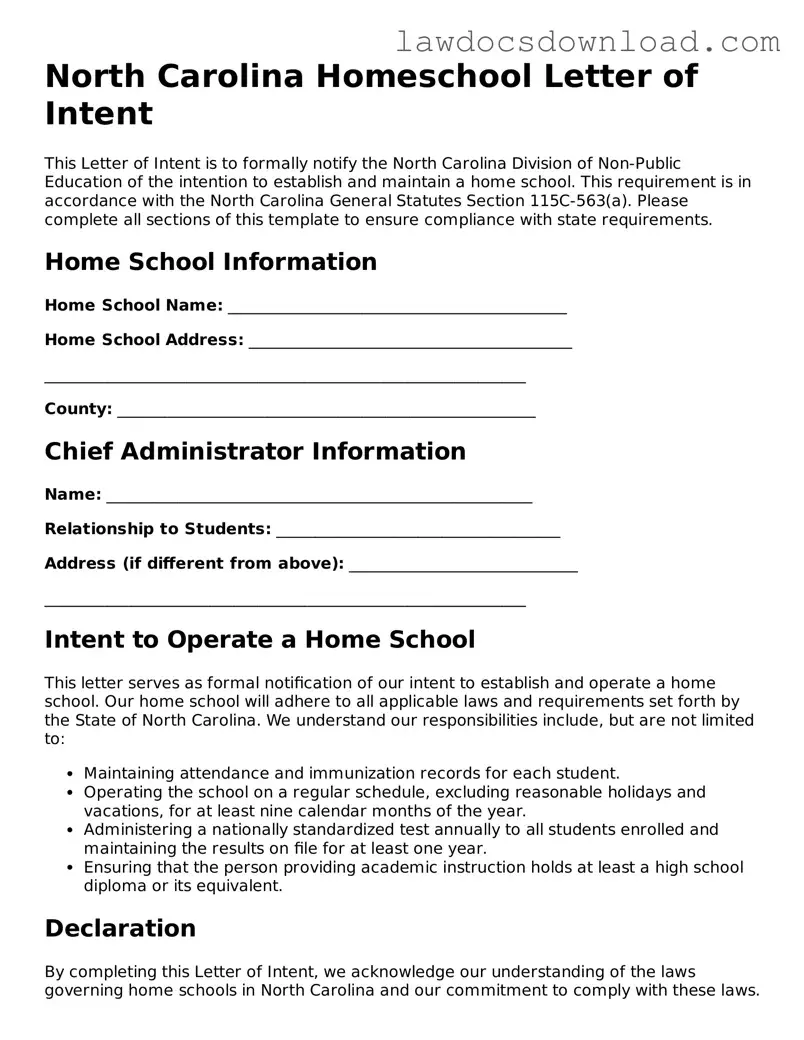Legal North Carolina Homeschool Letter of Intent Form
The North Carolina Homeschool Letter of Intent form is a document that individuals planning to start a homeschool must submit to the North Carolina Department of Non-Public Education. It signifies the official start of a homeschooling program by outlining the intent to provide education outside of the traditional public or private school setting. This crucial step ensures that the homeschool meets state educational standards and regulations.
Launch Homeschool Letter of Intent Editor Here

Legal North Carolina Homeschool Letter of Intent Form
Launch Homeschool Letter of Intent Editor Here

Launch Homeschool Letter of Intent Editor Here
or
Free Homeschool Letter of Intent
Get this form done in minutes
Complete your Homeschool Letter of Intent online and download the final PDF.